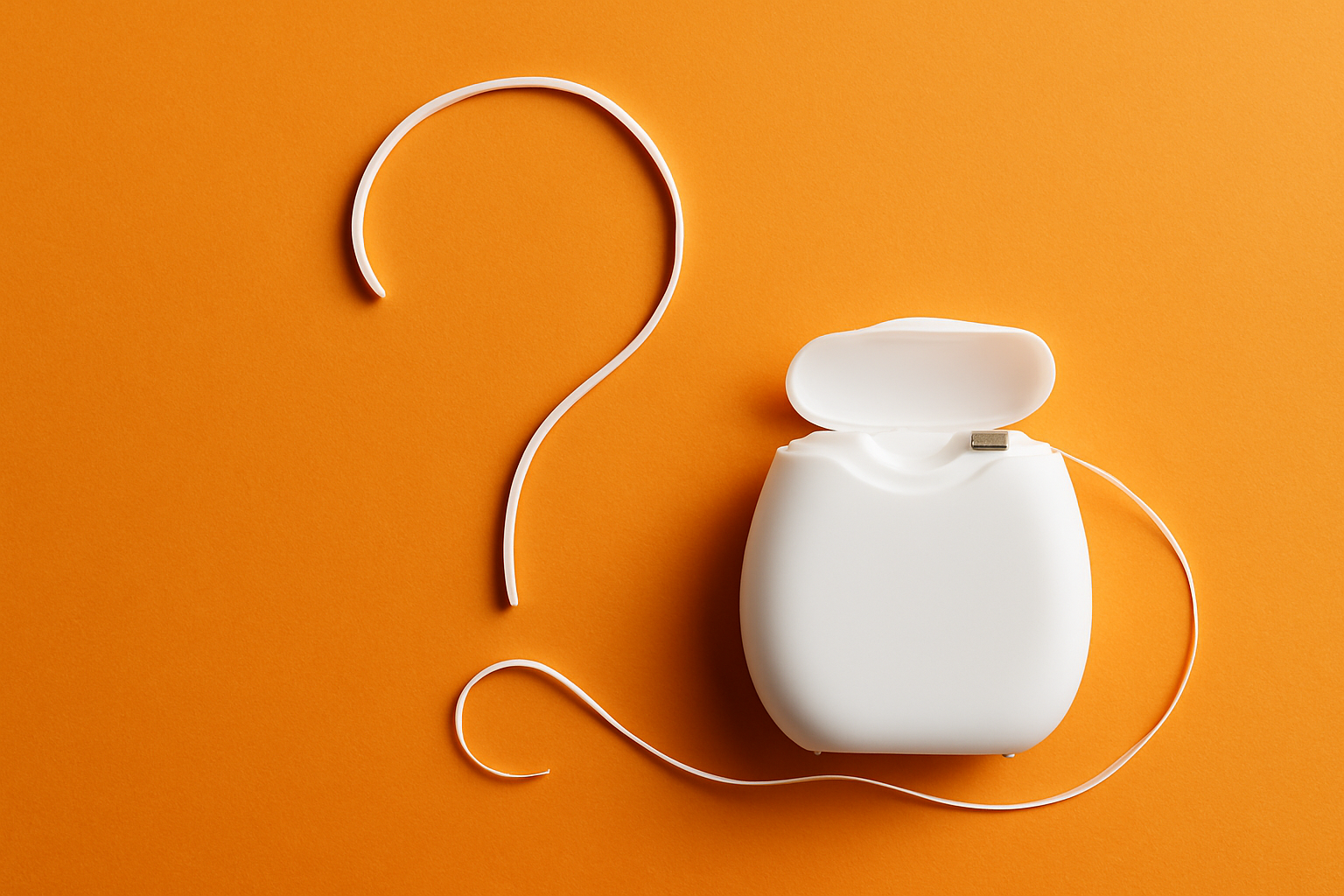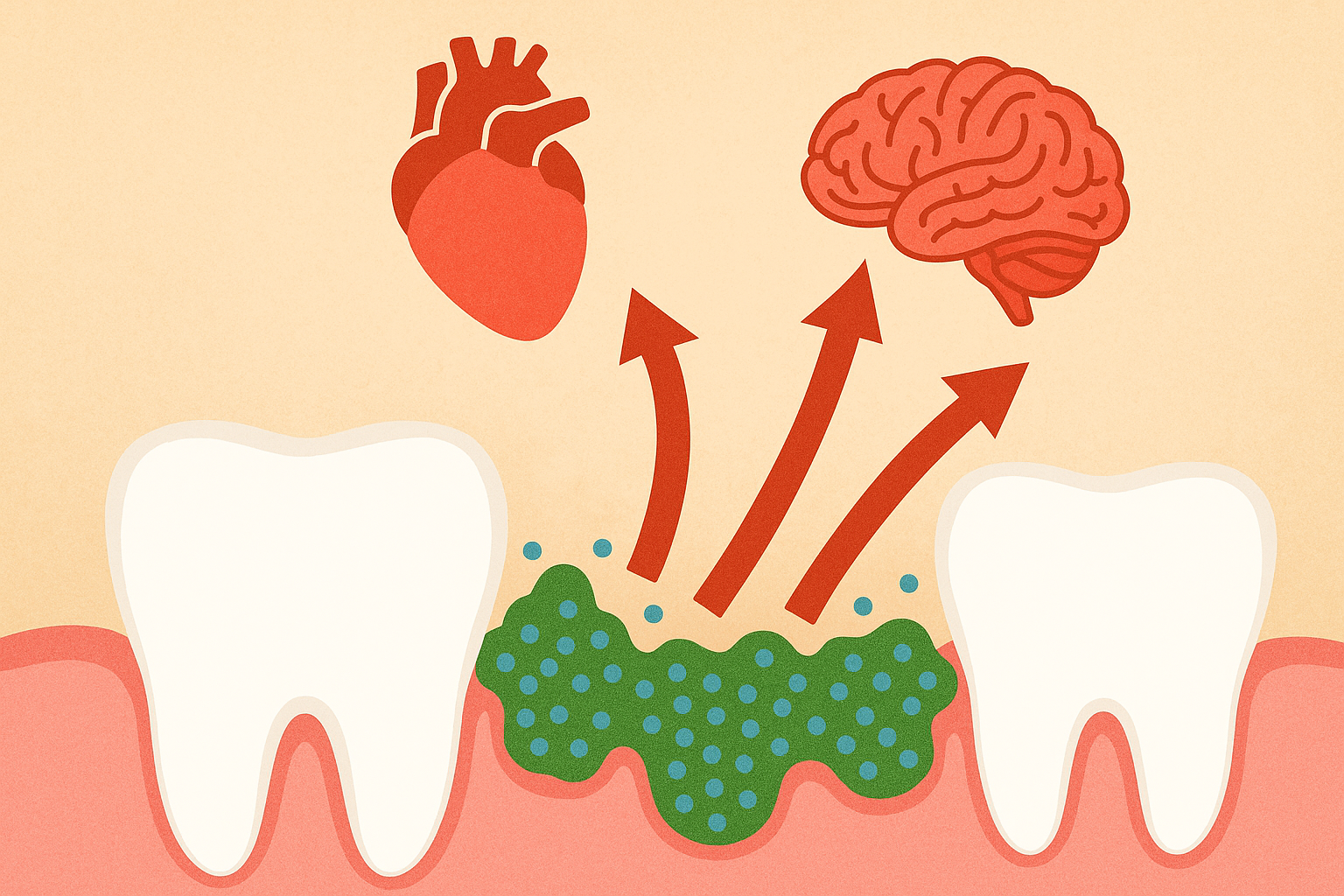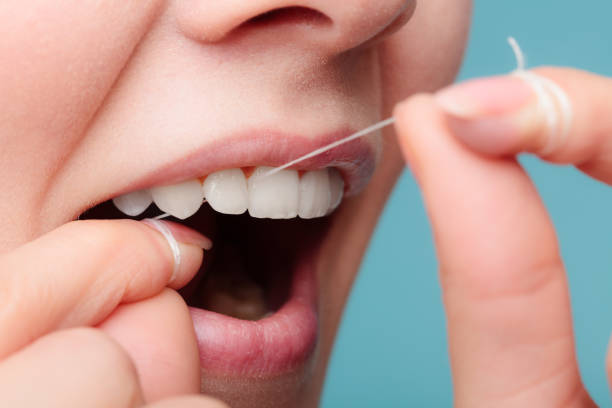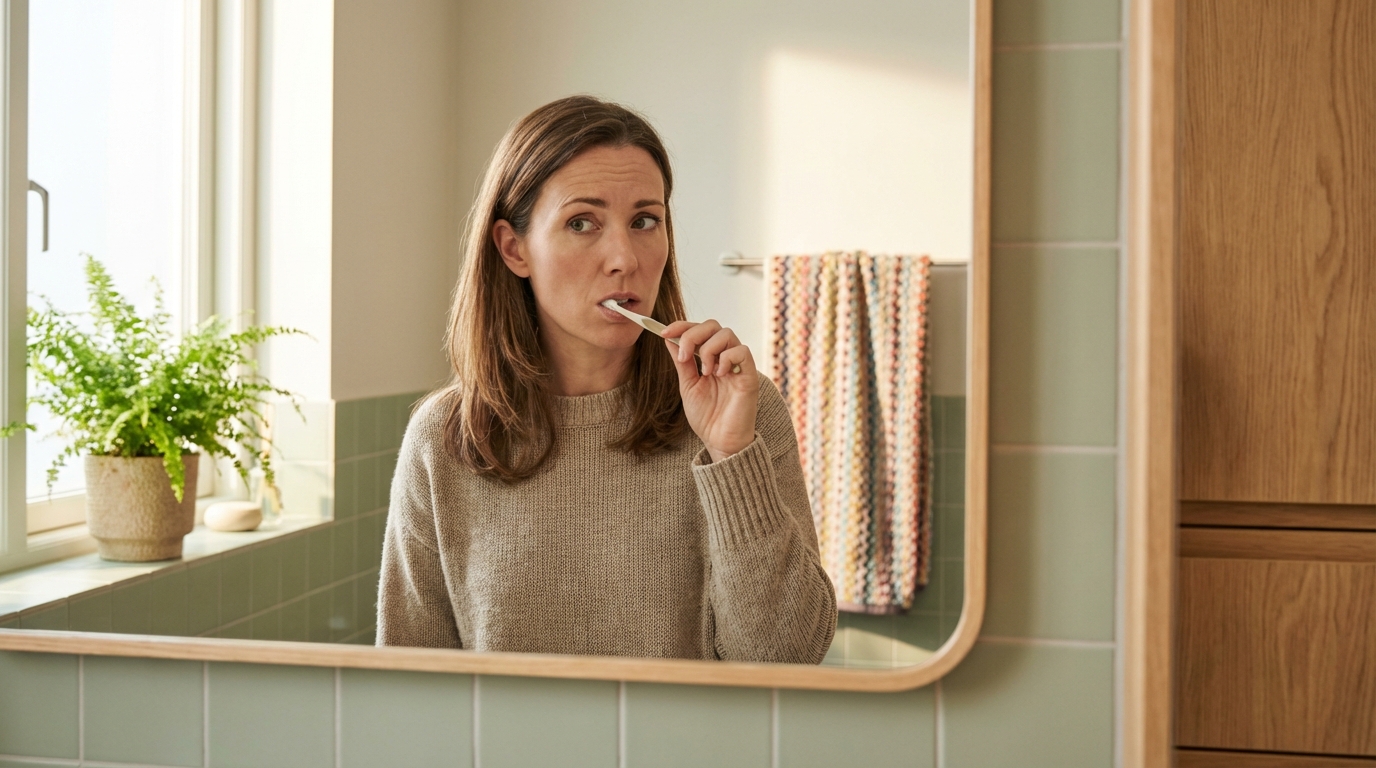
We’ve all heard it before: “Don’t forget to floss!” But many people still wonder if flossing is really that important. After all, if you’re brushing twice a day, isn’t that enough?
The truth is, flossing does more than keep your smile looking clean. Recent studies show that healthy gums may also play a role in protecting your overall health—and even how long you live. Let’s take a closer look at some common myths about flossing and uncover what science has to say.
Myth #1: Brushing Alone Is Enough
The belief: A good toothbrush and toothpaste will take care of everything.
The fact: Brushing only reaches about 60% of your tooth surfaces. The other 40%—the tight spaces between teeth and just under the gumline—are left untouched. That’s where bacteria and food particles tend to collect.
If they’re not removed, bacteria can harden into tartar, which leads to gum irritation and eventually gum disease. But that’s not all—those same bacteria also produce acids that attack the enamel between your teeth. Over time, this can cause cavities in spots your toothbrush simply can’t reach.
Bottom line: Brushing is essential, but without flossing, you leave yourself at risk for both gum disease and cavities between teeth.
Myth #2: Gum Disease Only Affects Your Mouth

The belief: Gum disease just means bleeding gums or bad breath.
The fact: Gum disease is now strongly linked to conditions that affect the whole body. Research in the Journal of Clinical Periodontology found that people with gum disease face a higher risk of heart disease, stroke, diabetes complications, and even memory problems later in life.
The reason? Inflammation. Infected gums allow bacteria to enter the bloodstream, triggering widespread inflammation that strains the immune system and blood vessels.
Bottom line: Gum health isn’t just about your mouth—it’s connected to your overall well-being.
Myth #3: Flossing Doesn’t Really Make a Difference

The belief: Flossing is nice in theory, but it doesn’t actually change much.
The fact: Studies say otherwise. A 2023 paper in the Journal of Periodontal Research found that daily flossers had much lower rates of gum inflammation than those who skipped it. Another review in the American Journal of Preventive Medicine showed that regular flossing lowers the risk of tooth loss over time.
And here’s where it ties into longevity: losing teeth has been linked to a shorter life expectancy. Protecting your gums helps protect your teeth—and may even help you live longer.
Bottom line: Even though flossing takes a bit of time, the results for your smile and health are huge.
Myth #4: Flossing Is Only for Adults

The belief: Kids don’t really need to floss.
The fact: Gum health matters at every age. Plaque and bacteria can start causing damage early in life. That’s why the American Dental Association recommends helping children start flossing as soon as two teeth touch.
Building this habit young makes flossing second nature—and sets kids up for healthier smiles as adults.
Bottom line: The earlier you start flossing, the better.
Myth #5: Flossing Has to Be Complicated

The belief: Flossing takes forever and feels awkward.
The fact: Today, there are many easy options. If string floss is tricky, try floss picks, water flossers, or small interdental brushes. These tools make cleaning between teeth faster and more convenient.
The key is consistency. Even one minute of flossing a day can make a big difference in gum health.
Bottom line: Flossing doesn’t need to be hard—it just needs to be done regularly.
The Longevity Connection
Here’s the exciting part: gum health may actually influence how long we live. People with advanced gum disease are more likely to experience serious health problems that shorten lifespan.
Think of flossing as a daily investment. One minute a day can help lower your risk of tooth loss, cavities, heart disease, and inflammation throughout the body. Few health habits are this simple yet this powerful.
Tips for Making Flossing a Habit
- Start small. Aim for a few nights a week, then build up to daily.
- Pair it with brushing. Keep floss handy so it’s easy to remember.
- Try different tools. Find the option that feels most comfortable.
- Stick with it. Over time, it becomes second nature.
When to See a Dentist

Flossing is a powerful tool, but it isn’t the whole solution. If you notice red, swollen, or bleeding gums—or if flossing is painful—it’s important to see a dentist. With early care, gum disease can often be reversed.
At Riverside Dental Center, Dr. Shinali Patel and our team focus on prevention first. With gentle cleanings, personalized advice, and modern treatments, we help Riverside patients keep their gums healthy and their smiles strong for years to come.
Final Thoughts
So, does flossing really matter? Absolutely. Flossing isn’t just about keeping your smile bright—it’s about protecting your gums, your teeth, your heart, and your future health.
If you’ve been skipping it, today is the perfect day to start. Your gums—and your future self—will thank you.
👉 Ready to take the next step toward healthier gums and a brighter smile? Call Riverside Dental Center at (951) 353-8454 today or fill out our contact form to schedule your appointment with Dr. Shinali Patel.





.jpeg)
.jpeg)
